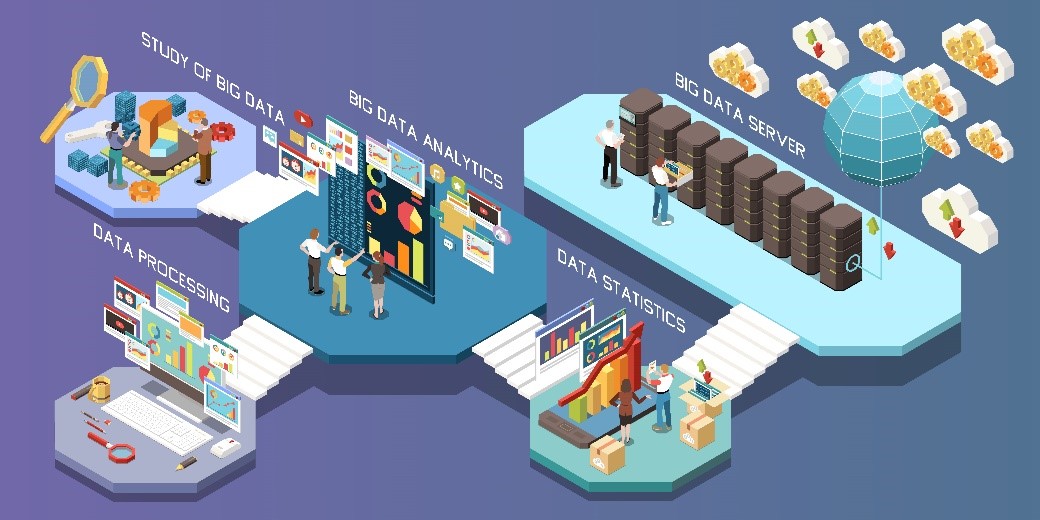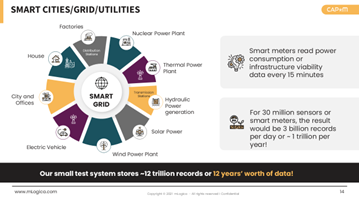

Local

Local Agencies and Education Institutions
Advanced Analytics and Generative AI (GenAI)
Mainframe and legacy modernization for local government requires updating and transforming legacy mainframe systems to align with modern technologies and meet the current and future needs of local communities. Legacy mainframes often host critical applications and data for local agencies, and modernization efforts aim to enhance efficiency, reduce costs, improve security and enable integration with contemporary technologies. Legacy systems, including mainframes such as IBM and BULL, are expensive to maintain and support. and experienced talent is also increasingly difficult to recruit as qualified resources are retiring from the workforce. Migrating to the cloud helps improve efficiency and reduce operational costs across local government agencies.

mLogica’s LIBER*M and STAR*M automated mainframe and legacy modernization suites accelerate migrations of legacy databases such as Sybase, Teradata, Netezza and Informix to Postgres on the cloud at low cost and low risk. Our proprietary automated technology, experienced team and rigorous quality assurance testing are the keys to seamlessly migrating large, complex, on-premise legacy IBM and Bull mainframe and applications developed in Assembler, Java or Easytrieve to modern cloud platforms with high speed and accuracy.
Advanced Data Management
Advanced data management for local government agencies is crucial for improving efficiency, transparency and decision-making. CAP*M CEA advanced data integration technology allows users to utilize massive amounts of data to create a unified view of citizen information across multiple departments across cities, towns, townships and remote locations. This allows for streamlined service delivery and improved client experience.
With CAP*M CEA, analyzing healthcare data can help local governments proactively allocate resources and plan public health interventions. For instance, implementing CAP*M’s predictive analytics models helps local agencies identify potential health issues and predict disease outbreaks.
Employing advanced data analytics to enhance local law enforcement and public safety can include predictive policing models, crime mapping and analysis of emergency response data to optimize resource allocation and improve incident response times.
Cloud Adoption
Cloud adoption in local government can bring about numerous benefits, including increased agility, scalability, cost-efficiency and improved collaboration. As many local agencies’ budgets are highly constrained, cloud adoption is vital to lower costs while providing users with more modern technologies. By addressing security, governance, training and other critical requirements, local governments can unlock the full potential of cloud computing for their operations.

As many agencies want to exit their legacy mainframe data centers, having automated solutions available to accelerate to the cloud are critical for time- and cost-efficient cloud migration. mLogica’s STAR*M and LIBER*M automated mainframe and legacy modernization software accelerates migrations of legacy databases such as Sybase, Teradata, Netezza and Informix to Postgres and Azure on the cloud at low-cost and low risk.
Advanced Analytics and Generative AI
Advanced analytics and generative AI offer local government powerful tools for improving decision-making, optimizing operations and enhancing public services. GenAI is starting to be used widely in agencies to automate and augment a variety of processes currently performed by machines and humans. The resulting benefits are clear, like the impact of computing on business decades ago: improved productivity, faster innovation, enhanced customer experience and personalization. GenAI even offers radical predictive modeling capabilities that are changing the face of research through improved performance and accuracy.

Education Security
Ensuring education security for high schools and middle schools using advanced analytics involves implementing measures to protect students and school data, enhance safety and optimize learning environments. CAP*M CEA behavioral analytics helps identify patterns that may indicate potential safety concerns, such as bullying or self-harm. Monitoring online activities, communication channels, and physical behaviors with GenAI-based behavioral segmentation can facilitate timely interventions.
CAP*M CEA predictive analytics models can anticipate and prevent safety issues by analyzing historical data on previous incidents, student behavior and environmental factors to identify potential risks and take proactive measures. Incorporating CAP*M CEA advanced analytics into education security strategies, high schools and middle schools can create safer learning environments, support academic success and address emerging safety challenges effectively.

Facilities Security
Using advanced predictive analytics and big data to optimize facilities security involves leveraging data-driven technologies to enhance the safety, efficiency, and resilience of all operations within the facility. A comprehensive data collection system, integrating information from various sources such as surveillance cameras, sensors (including RFID and IoT devices), weather data, and historical incident reports, can provide a complete picture of the facility's security status.
By utilizing mLogica’s CAP*M CEA converged analytic petabyte+ platform, organizations can achieve ultra-high-speed data ingestion and enriched information processing. This allows for the real-time analysis of complex events, enabling swift escalation of threat intelligence to security personnel and first responders, thereby enhancing overall facility security.




































